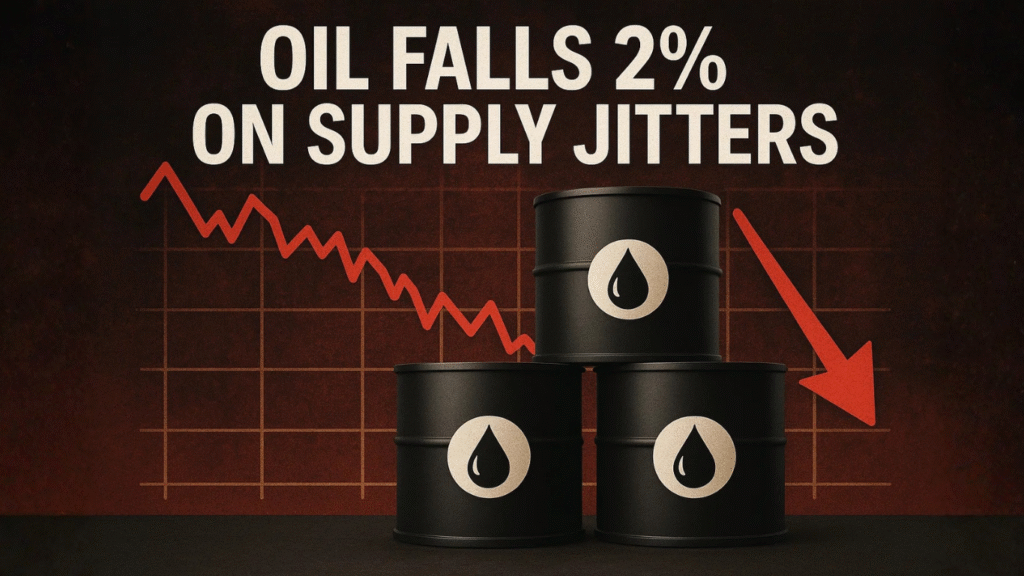Oil prices fell nearly 2% on Tuesday, extending their decline for a third consecutive session as investors balanced concerns over U.S. sanctions on Russia’s top oil firms with signs that OPEC+ may raise output in December.
Brent crude settled down $1.22, or 1.9%, at $64.40 a barrel, while U.S. West Texas Intermediate (WTI) dropped $1.16, or 1.9%, to $60.15. The losses followed last week’s rally—its strongest since June—fueled by President Donald Trump’s sanctions on Lukoil and Rosneft, two of Russia’s largest oil companies.
Germany’s economy minister said Rosneft’s German operations would be exempt from the sanctions because they are no longer under Russian control, easing fears of an immediate European supply crunch.
“Trump giving Germany this waiver gives the impression that there could be more flexibility in these sanctions,” said Phil Flynn, senior analyst at Price Futures Group. “That reduced some of the panic about tightening supplies.”
According to IEA chief Fatih Birol, global spare capacity should cushion the sanctions’ impact on oil-exporting nations.
Russia’s Lukoil to Exit Overseas Assets
In a major shift, Russia’s Lukoil announced plans to sell its international assets on Monday, marking one of the most significant corporate moves since Moscow’s full-scale invasion of Ukraine in February 2022. The company accounts for roughly 2% of global crude output, making the selloff a notable development for energy markets.
The announcement follows weeks of tightening Western sanctions that have complicated Russia’s access to global energy financing and trade routes.
Meanwhile, Indian refiners have paused new orders for Russian crude pending further guidance from authorities and suppliers, according to Reuters sources. The move underscores the ripple effects of sanctions across Asia’s energy sector, which has become a key market for Russian oil since 2022.
OPEC+ and U.S.-China Talks Shape Outlook
OPEC and its allies, including Russia, are reportedly considering a modest output boost in December, potentially reversing some of the cuts implemented earlier this year to support prices. Analysts warn that questions remain about how much spare capacity the group can still deploy.

- OPEC+ has been gradually unwinding cuts since April.
- Saudi Aramco’s CEO said global demand remains solid, especially from China.
- Rising output could offset lost Russian barrels under new sanctions.
Adding to the mix, markets are watching a potential U.S.-China trade breakthrough, with Presidents Trump and Xi Jinping expected to meet Thursday in South Korea. Beijing signaled willingness to cooperate, saying both nations should “prepare for high-level interactions.”
Data from the American Petroleum Institute showed U.S. crude stocks fell 4.02 million barrels in the week ended October 24, while gasoline inventories dropped 6.35 million barrels and distillates declined 4.36 million barrels, indicating steady domestic demand.


